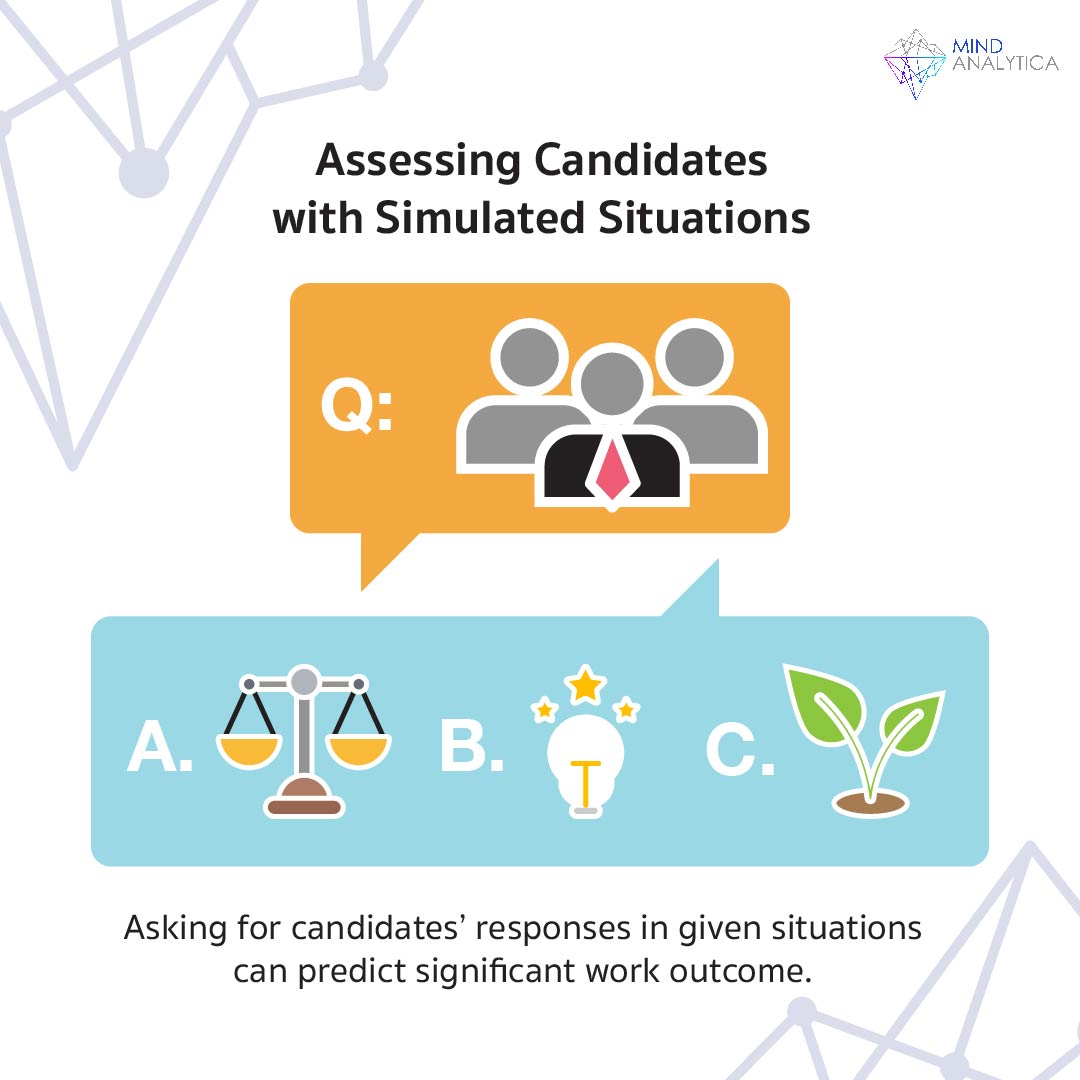Assessing Candidates with Simulated Situations
3 พฤษภาคม 2566 - เวลาอ่าน 3 นาที
In personnel selection, standard methods include reviewing applicants' backgrounds, education, and work experience and conducting interviews. These methods yield moderate success in finding the desired candidates for an organization. Some organizations may also use tests and various personality assessments (e.g., the Thai Government) to better understand applicants and increase the likelihood of finding the right fit. This article discusses another approach to personnel evaluation using simulated scenarios, where applicants explain how they would respond to different situations.
For example, a simulated scenario could involve an employee seeking advice about a colleague who was absent for four consecutive days without responding to phone calls or messages. Applicants are asked to assume the supervisor role and explain how they would handle the situation. Another example could involve a high-level executive criticizing an employee's work performance. Applicants must then assume the employee's role and react to the criticism. Measuring responses using simulated scenarios is highly successful in predicting post-hire behavior, such as job performance, collaboration with colleagues, communication skills, and interpersonal relationships.
There are several formats for measuring responses to simulated scenarios. The simplest method is a written test, where applicants read a story and answer a question about how they would handle the situation. Usually, there are multiple-choice options for applicants to select their preferred response. This is known as a Situational Judgment Test (SJT). The most time-consuming method is the Assessment Center, which invites several applicants to participate in a seminar lasting from three hours to several days. Applicants engage in various activities involving predefined simulated scenarios, and assessors evaluate their behaviors in different dimensions.
Both methods have distinct advantages. SJTs are quick and easy to score, but applicants do not have to immediately respond as they would in real life. In addition, facial expressions, gestures, and tone of voice cannot be observed. On the other hand, assessment centers allow observation of applicants' facial expressions, gestures, behaviors, and interactions with other candidates. However, the number of scenarios that can be used is limited due to the time-consuming nature of the activities in each session.
A middle ground between testing and assessment centers is structured interviews and short role-playing responses. In structured interviews, applicants are asked about hypothetical situations and checked how they react. Applicants don't play roles but explain their actions. Short role-playing responses involve interacting with actors in simulated scenarios, where applicants must demonstrate their reactions through facial expressions, gestures, and tone of voice. Actors or external assessors then evaluate the applicant's performance.
Regardless of the simulation format, the most important aspect is selecting scenarios that reflect real work situations for a particular job, covering areas such as relationships, decision-making, communication, and strategy. The more accurate and coverage scenarios reflecting actual job circumstances, the more precise the selection process will be.
MindAnalytica specializes in creating simulations in various formats. You can try our situational response tests for teamwork here (see Teamwork Test). Based on client needs, we have an extensive database of proven scenarios that can be adapted for situational response tests, structured interviews, short role-playing responses, or assessment centers. With our database and experience, organizations can trust that the test results will accurately reflect the true qualities of applicants. So when you need the right person for the job, trust MindAnalytica to help uncover their true potential because we care about what's inside.



